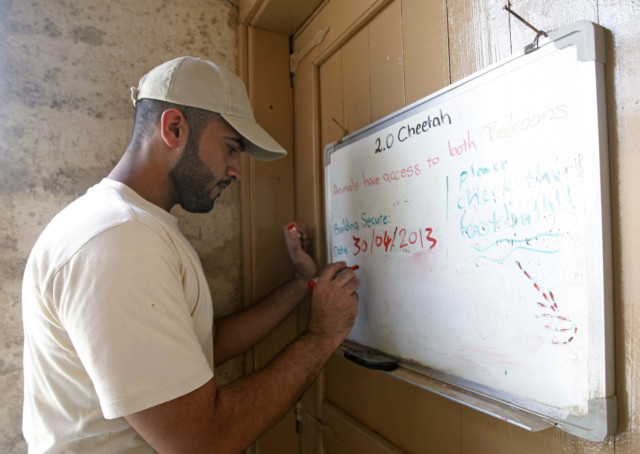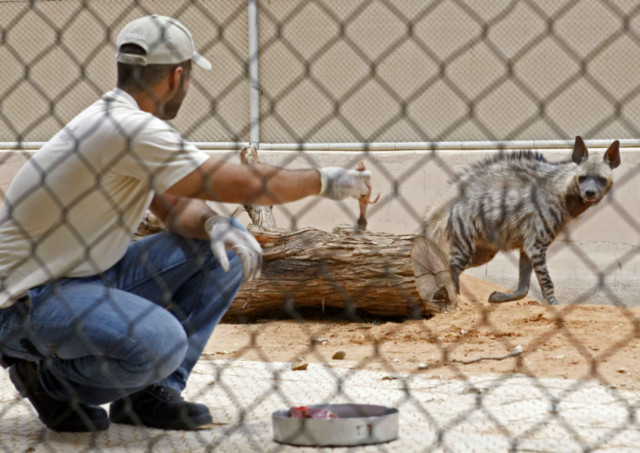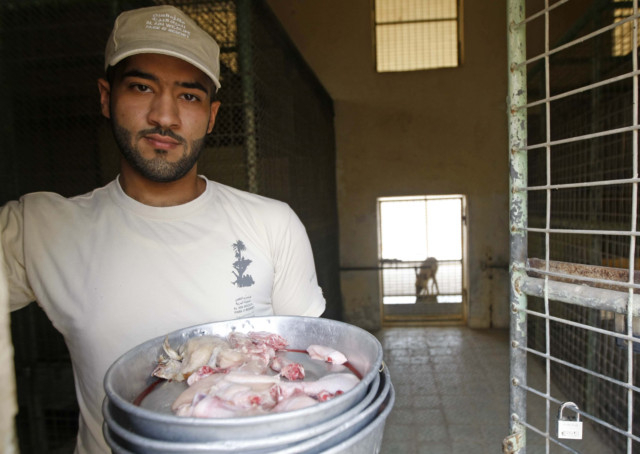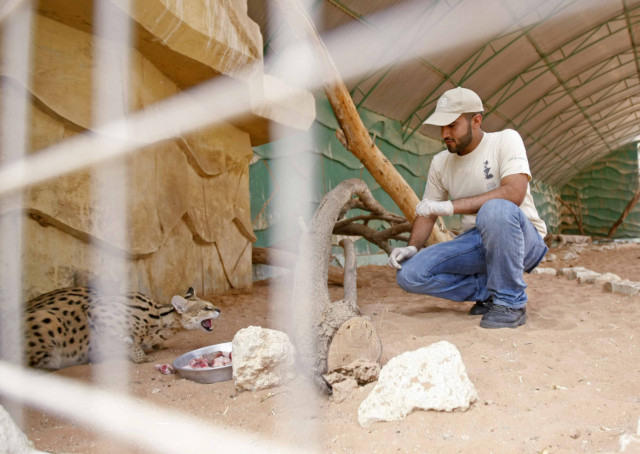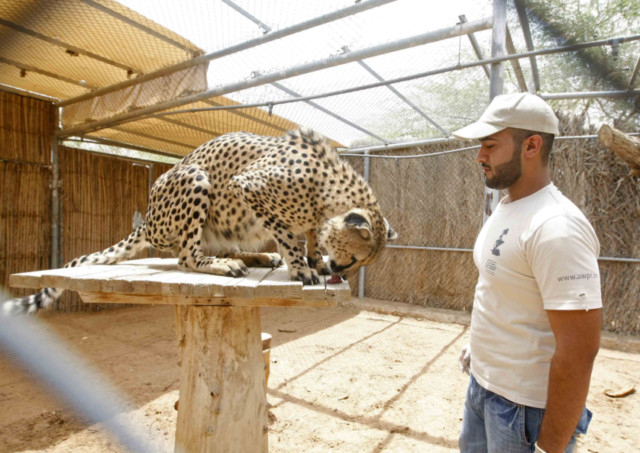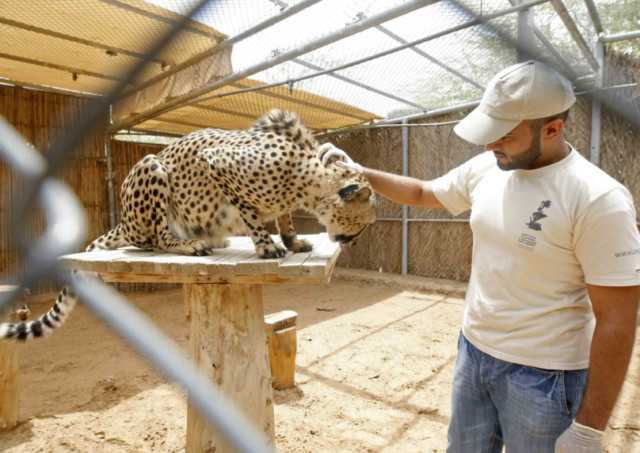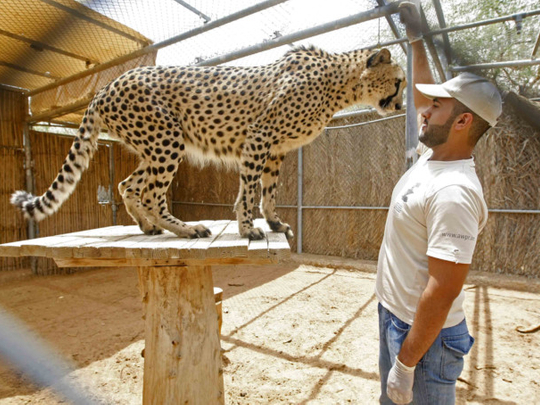
Al Ain: He is a zookeeper by day and student by night.
And his zookeeping includes looking after a huge variety of carnivores – 34 sand cats, 15 lions, 10 meerkats, six pumas, four serval cats, three tigers, a number of hyenas, leopard cats and a duo of African cheetahs at Al Ain Zoo. When he’s not in the company of carnivores he is a junior student at Al Ain University.
“My job is to keep the animals safe and happy,” says Mayed Al Baloushi, 24. About 90 per cent of his job involves cleaning areas assigned to him and feeding the animals – which his friends find unglamorous.
He is one of the more than 160 Emiratis working at the zoo, which has a staff strength of about 500. He also looks after the critically endangered Arabian sand cats (Felis margarita, or sand dune cat).
Al Baloushi’s job doesn’t mean simply throwing food at the carnivores. The food – beef, chicks, mice, canned food – must be carefully weighed. “I have to make sure they’re not overfed or underfed.” Besides keeping the feeding logs, he also works closely with the vet team in the “back of house” facilities, where some animals and those born in captivity are kept until they can go out on exhibit.
“My friends find my job a bit weird,” says Al Baloushi, who is taking up accounting. He starts work at about 7am and continues until 1.30pm. His university classes are from 2 to 6.30pm.
Looking after animals isn’t something alien to Al Baloushi. As a child he had kept numerous pets – including up to seven boas, tarantulas, a scorpion, parrots, a variety of birds, a Labrador and rabbits – in his family home in Al Ain’s Al Sarooj district.
While keeping pets at home did not immediately qualify him for the job, he knew it’s a job he wanted to do. After passing out of Khalid Bin Walid High School in Al Ain, Mayed already had an eye for a zoo job when he joined university.
“As a child, I dreamt of entering the exhibits and feeding the animals following a visit to the zoo. So this is a dream job for me. There’s not a boring moment here.”
He said zookeepers are the first line of defence against potential health and injury problems. “It’s an important job. You have to know the animals up close and know them well – to see the first signs of illness. This allows the vets to treat them as soon as possible,” he said.
That’s what happened last month when he saw one of the four serval cats – a spotted medium-sized African wildcat closely related to the Arabian caracal – with a back injury. “I found one with a swollen back so we took it for treatment,” he said.
Being a zookeeper also means commitment. “Feeding happens away from the public eye. Most of the time you do the job alone.” Before and after feeding time, he steps into a pan with foam filled with anti-bacterial liquid.
But what gives him the kicks is getting to work with species that few people ever get to see up close. “It’s both a hobby and a profession,” he said.
The best part of his job is training Tsavo, a 60-kg South African cheetah. “We became friends in a short time. He’s calm and trainable … but I have to be careful just the same. He’s fast and he’s a carnivore. The first time I came face to face with Tsavo, I was excited more than afraid. But I had to pay close attention, read his body language, so I could make evasive moves should he jump at me.”
Today the two are great pals and Al Baloushi has no qualms feeding Tsavo by hand.


